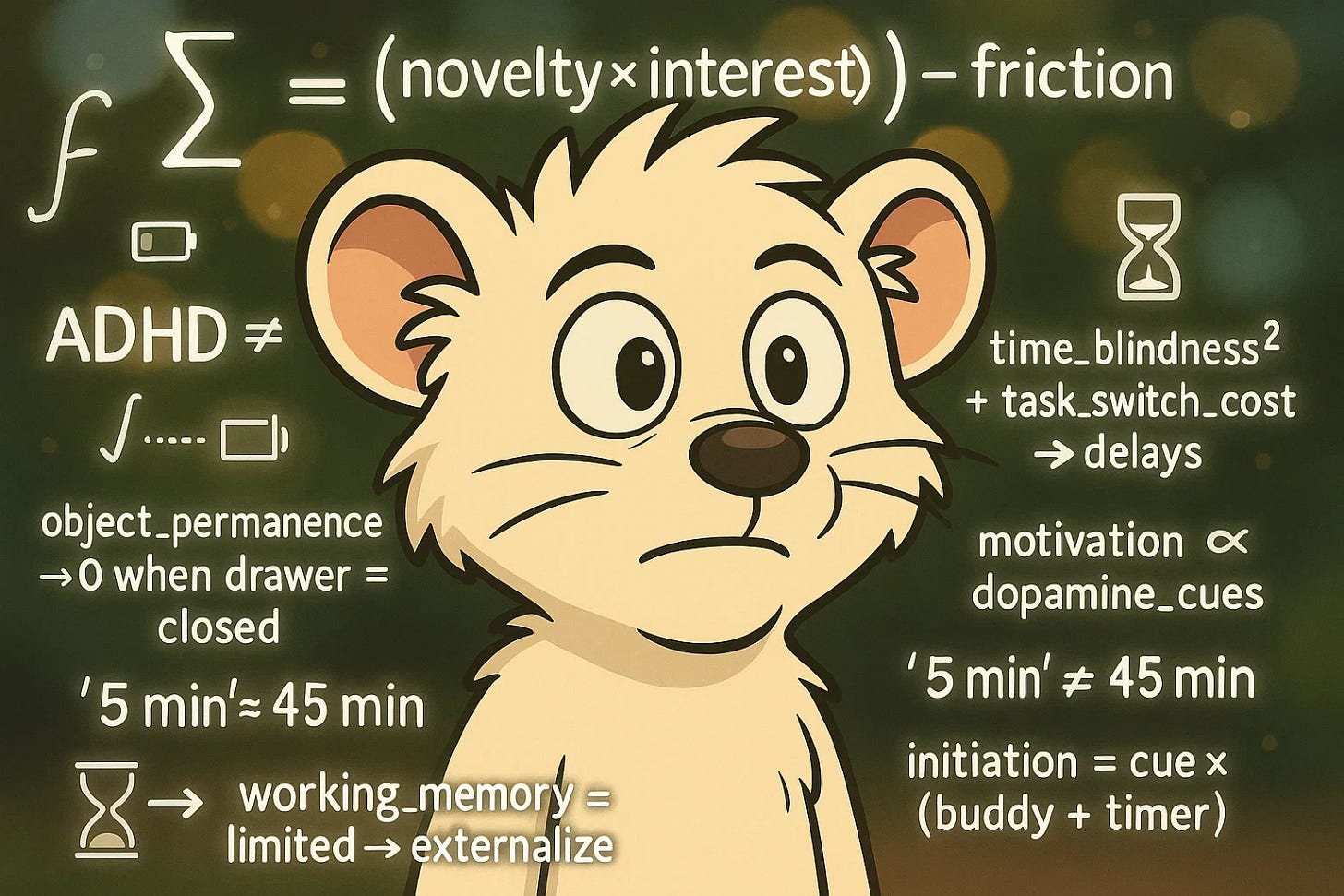Life After a Late ADHD Diagnosis
Making sense of the past and shaping life with new awareness
You got through school with “good enough” grades. Teachers said you were smart, maybe just distracted sometimes. You built tight routines in college or early work life, and those guardrails kept things looking steady.
Then the scaffolding fell away. A move. A new job. A pandemic. Kids. Suddenly the cracks showed. Missed deadlines. Forgotten bills. A brain that felt like it was always buzzing yet couldn’t get traction. You wondered why life seemed harder for you than for everyone else.
That’s often the moment people finally learn the word: ADHD. And once you hear it, there’s no un-hearing it.
The mix of relief and grief after the signs finally add up…
Finding out late is complicated. On one hand, you finally have an explanation. The constant self-blame starts to make sense. But there’s grief too. You look back at years of exhaustion and wonder what might have been easier if you had known sooner.
Many adults, especially women, fly under the radar until structure disappears. School routines can mask the symptoms. Workplaces that reward hyperfocus in bursts may let people slide. But when life piles on, the old coping tricks crack. You’re not broken. You’ve been compensating for decades.
Letting the story shift
Getting diagnosed late forces a reset. The story you’ve been telling yourself: that you’re lazy, careless, inconsistent, was never true. The science is clear: ADHD brains process reward, time, and attention differently. That’s not a flaw. It’s a wiring pattern.



